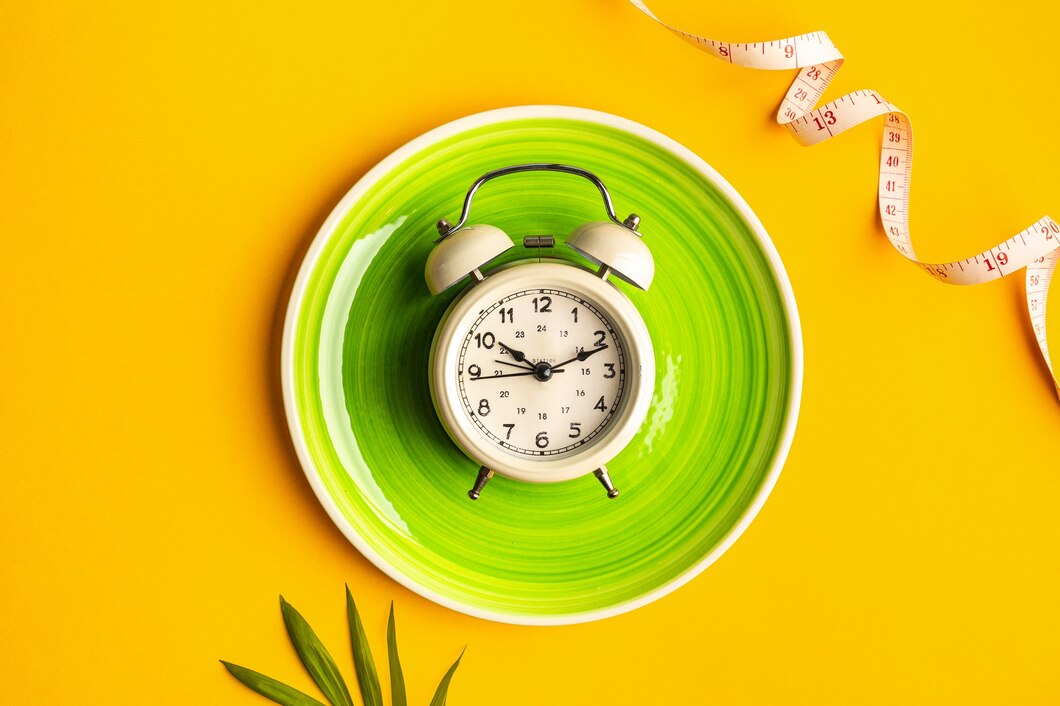Disadvantages of Intermittent Fasting That Could Derail Your Weight Loss Goal
Healthy’s Summary
Intermittent fasting (IF) gets a lot of buzz in the wellness world. It’s trendy, it’s minimalist, and some people swear by it for dropping pounds without calorie counting. But let’s slow the hype train for a second.
While intermittent fasting can work for some, it’s definitely not a one-size-fits-all solution—especially when it comes to sustainable weight loss. Skipping meals can mess with your energy, increase cravings, and in some cases, even backfire by causing overeating later. For folks with certain health conditions, hormonal imbalances, or a history of disordered eating, it can also do more harm than good.
It’s easy to assume “not eating” = weight loss. But as with most things in health, it’s not that simple.Factors like your stress levels, sleep, age, hormones, and relationship with food can all shape how intermittent fasting affects your weight goals.
So… What’s the Catch with Intermittent Fasting?
Intermittent fasting often gets sold as this magical shortcut to weight loss. And sure, for some people, it can create a calorie deficit. But there’s more to the story. Let’s unpack some of the ways intermittent fasting might not be the golden ticket it seems.
Hunger Comes Back With a Vengeance
It sounds doable at first: skip breakfast, eat in an 8-hour window, done. But your body doesn’t always play along.
When you go long stretches without food—especially if you’re new to fasting—your hunger hormones (like ghrelin) can ramp up fast. That can lead to a weird combination of fatigue, irritability, and an eventual “screw it” binge session at 10 p.m.
Not ideal for weight goals. Or your sanity.
It Might Tank Your Energy (and Workouts)
If you’re someone who likes to work out in the morning but haven’t eaten since 6 p.m. the night before? Yeah… your workout might suffer.
Without fuel, your body taps into energy reserves, which sounds good in theory. But in real life, this can feel like dragging your body through mud. Less intensity in your workouts means fewer calories burned and slower muscle growth. That combo can actually stall your weight loss progress.
According to Cleveland Clinic, some people report lower energy and slower recovery times, especially if they aren’t timing meals well.
You Could Lose Muscle, Not Just Fat
This one’s a little sneaky. Weight loss isn’t always fat loss. If you’re not getting enough protein or you’re not strength training while fasting, your body might dip into muscle stores for energy. Over time, losing muscle can actually lower your metabolism.
A slower metabolism = burning fewer calories at rest. Which = frustrating weight plateaus.
Social Life? What Social Life?
Let’s be real: eating is social. Trying to stick to a strict eating window can feel awkward or even isolating. If your fasting window ends at 6 p.m., but your friend’s birthday dinner starts at 7… what then?
This kind of lifestyle clash can make fasting feel rigid, and for some, that rigidity can snowball into disordered eating patterns. If food starts to feel like a “rulebook” instead of nourishment, that’s a red flag.
According to National Eating Disorders Association, overly restrictive diets can be a risk factor for disordered eating behaviors, especially in people already prone to perfectionism.
Ask Healthy
It’s Not Always Kind to Your Hormones
Women in particular may have a harder time with intermittent fasting—especially if doing long or frequent fasts.
Some research suggests that fasting can impact reproductive hormones, thyroid function, and blood sugar regulation. That might mean irregular cycles, mood swings, or just feeling “off.” If your body thinks it’s under stress (from not eating), it may prioritize survival over weight loss.
Let’s Break It Down: When IF Might Not Be Your Friend
Here’s a quick (but not exhaustive) look at some signs intermittent fasting might not be working in your favor:
- You feel drained or dizzy during fasting windows
- You’re binging or feeling “out of control” during eating hours
- You’re not losing weight—or you’re gaining
- Your sleep, mood, or menstrual cycle is out of whack
- You’re constantly thinking about food (like, all the time)
If any of these hit close to home, it might be worth rethinking whether this method fits your body and lifestyle.
The Takeaway
Intermittent fasting isn’t the villain—but it’s not a miracle cure either. It’s just one tool in a whole toolbox of approaches to weight management. And like any tool, it works best when used with the right goals, context, and body in mind.
If it’s working for you and you feel great? Amazing—carry on. But if it’s leaving you more tired, frustrated, or food-obsessed than before, it might be time to hit pause and consider other approaches. Because sustainable weight loss isn’t just about when you eat. It’s about what, why, and how you eat too.
Want to dig deeper?
Find Your Fasting Fit
“Find Your Fasting Fit” is your personalized guide to exploring fasting as a tool for health, energy, and weight management. Whether you’re new to fasting or looking to refine your approach, this program provides tailored tips and actionable guidance to align fasting with your lifestyle. From choosing the right method to managing hunger and tracking results, this program empowers you to build a sustainable fasting routine that works for your goals.
Enroll in one of Healthy’s Programs to log, track and learn more about your Health, one conversation at a time.
Learn More




